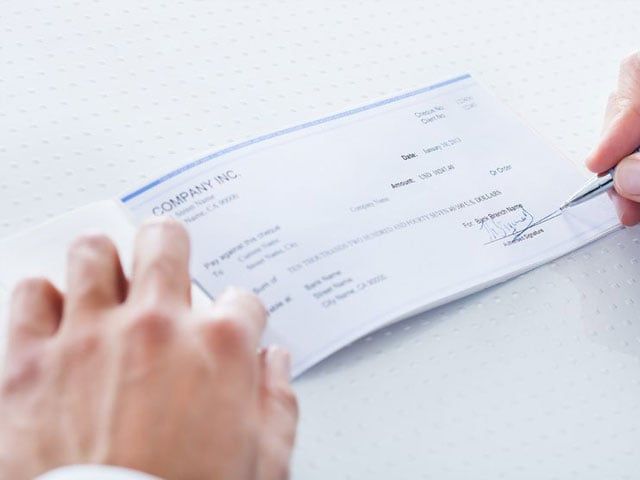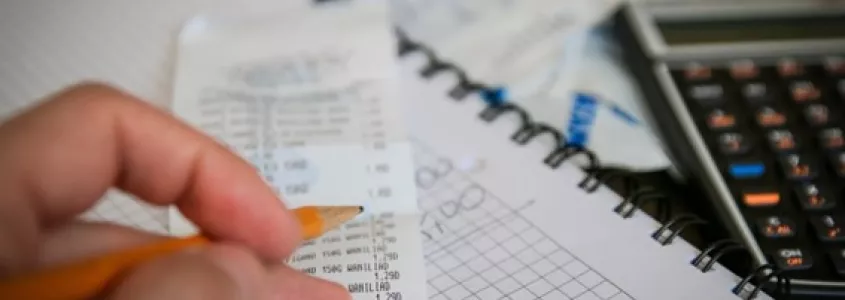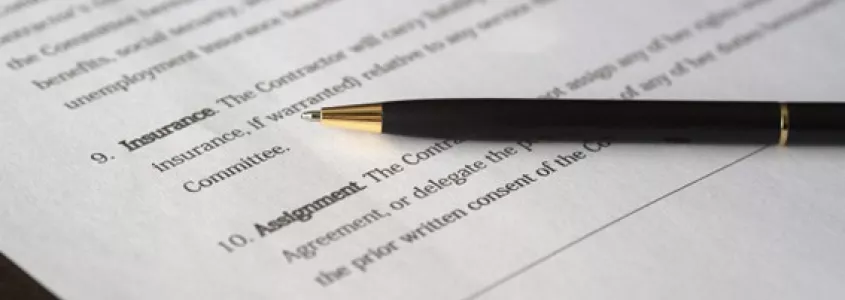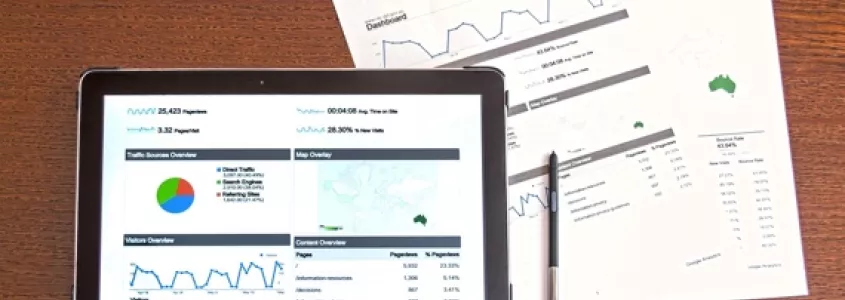Actions for non-payment of bills of exchange, cheques, promissory notes...
- The exchange proceedings shall be commenced by means of a brief claim to which the exchange instrument shall be attached.
- The court shall analyse, by means of an order, the formal correctness of the bill of exchange and, if it finds it to be in conformity, it shall adopt, without further formalities, the following measures:
- 1ª To order the debtor to pay within ten days.
- 2ª Order the immediate seizure of the debtor's assets for the amount stated in the enforcement order, plus another amount for late payment interest, expenses and costs, in case the payment order is not complied with.
- Against the order denying the adoption of the measures referred to in the previous section, the plaintiff may lodge the appeals referred to in section 2 of art. 552. The bill of exchange action may be direct against the acceptor or his guarantors, or return action against any other obligor. In the absence of payment, the holder, even if he is the drawer himself, shall have the direct action derived from the bill of exchange against the acceptor and his guarantor to claim without the need for protest, both in ordinary proceedings and through the special exchange process, as provided for in arts. 58 and 59.
The holder may bring an action of return against the endorsers, the drawer and the other obligors, after the bill has matured, if payment has not been made. The same action may be brought before maturity in the following cases:
- a) When the acceptance has been totally or partially refused.
- b) When the drawee, whether or not he is the acceptor, has been declared bankrupt or the seizure of his assets has been unsuccessful.
- c) When the drawer of a bill of exchange, whose presentation for acceptance has been prohibited, is declared bankrupt.

Failure to accept or pay shall be recorded by a protest drawn up in accordance with the provisions of this Chapter. The declaration on the bill itself, signed and dated by the drawee refusing acceptance or payment, and the declaration, with the same requirements, of the domiciliary or, where appropriate, of the Clearing House, refusing payment, shall produce all the exchange effects of the protest, unless the drawer has expressly demanded on the bill the raising of the notarial protest in the space reserved by the regulations applicable to optional clauses. In any case, the declaration of the drawee, of the domiciliary or of the clearing house must be made within the time limits established for notarial protest in the following article.
Protest by a notary for non-acceptance must be made within the time limits set for presentation for acceptance or within eight working days thereafter.
Protest for non-payment of a bill of exchange payable on a fixed date or at a certain time from its date or from sight must be made within one of the eight working days following the due date of the bill of exchange. In the case of a bill of exchange payable on demand, the protest shall be made within the time limit specified in the preceding paragraph for protest for non-acceptance. Protest for non-acceptance shall exempt from presentation for payment and from protest for non-payment. In the event of suspension of payments, declaration of bankruptcy or insolvency of the drawee, whether he has accepted or not, or of the drawer of a bill not subject to acceptance, the presentation of the order declaring the suspension of payments or of the order declaring bankruptcy or insolvency shall be sufficient for the bearer to exercise his right of return.
The declaration that the bill of exchange has been protested shall be made by the Notary, within the time limits provided for in the previous article, by means of an official record in which the bill of exchange shall be copied or reproduced. Within the following two working days, the notary shall notify the drawee of the protest by means of a letter drawn up on ordinary paper, stating his name, surname and office address. The bill of exchange shall be copied or reproduced on the letter and the drawee shall be informed of the time limit available to him, in accordance with Art. 53, to examine the original, which shall be deposited at the notary's office, to accept or pay the bill, as the case may be, or to make representations consistent with the protest. The writ of notification shall be delivered by the notary, or by whomsoever he may designate for this purpose, to the drawee, his dependants or relatives, or any person found at the corresponding address. If none of them can be found, the notification shall be deemed to have been validly carried out with its delivery to any neighbour of the said domicile. Refusal to receive the writ shall not affect the validity of the notification. All of this shall be recorded in the protest act. The credit institutions are obliged to send the drawee, within two working days, the notice of protest for non-payment of bills of exchange that are domiciled with them.
Regardless of the time at which the notification was made, the notary shall retain the bill of exchange in his possession without delivering it or any evidence of the protest to the holder until fourteen o'clock on the second working day following that of the notification. During this time and during office hours, the interested parties may examine the bill at the Notary's office and make statements consistent with the protest. If the protest is for non-payment and the payer presents himself within this period to pay the amount of the bill and the costs of the protest, the Notary shall accept the payment, handing over the bill to him with diligence on it and on the record of having paid and cancelled the protest. Similarly, if the protest is for non-acceptance, the cancellation shall be noted in the minutes, if the bill is accepted. Within five working days of the expiry of the time limit established in the first paragraph of this Article, the notary shall return the bill to the holder with a copy of the protest, if he has requested it. However, the holder may withdraw them as soon as the time limit of the first paragraph has expired. If the protested bill contains indications or if there are several drawees, a notification letter shall be sent to all those residing in the same place, in the manner and with the effects indicated in Art. 52. If they reside in a different place, the protest may be reproduced in the locality in question within eight working days following the date of the preceding protest.
The holder shall give notice of non-acceptance or non-payment to the endorser and to the drawer within eight working days. This period shall be calculated as follows:
- 1º) In the case of notarial protest from the date of the protest.
- 2º) In the case of the written declaration referred to in section 51, paragraph 2, from the date stated therein.
- 3º) In the case of the "free of charge" return clause, from the date of presentation of the bill of exchange.
Within two working days from the date on which the endorser has received the communication, he shall in turn communicate it to his endorser, indicating the names and addresses of those who have given the preceding communications. The same obligation shall apply to all endorsers up to the drawer. The aforementioned time limits shall run from the moment of receipt of the preceding communication. Any communication made to a signatory of the draft shall be made within the same time limit to his guarantor. If his address is not known, the communication shall be made by the guarantor. If an endorser has not indicated his address or has indicated it in an illegible manner, it shall be sufficient if the communication is made to the endorser before him. The person who has to give notice may do so in any manner, even by simple return of the bill of exchange, but he must prove that he has given notice within the time limit indicated. This time limit shall be deemed to have been observed if the letter in which the communication is made has been posted within the said time limit. The person who fails to give notice within the aforementioned time limit retains his right of action, but shall be liable, where appropriate, for the damage caused by his negligence, without the claim for damages exceeding the amount of the bill of exchange.
By means of the clause ""return without costs"", ""without protest"", or any other equivalent indication written on the instrument and signed, the drawer, the endorser or his guarantors may exempt the holder from having a protest raised for non-acceptance or non-payment in order to be able to exercise his right of return, either by ordinary or enforceable means. This clause shall not exempt the holder from presenting the bill of exchange within the corresponding time limits or from the notices to be given. The proof of the non-observance of the time limits shall be the responsibility of the party who alleges it against the holder. If the clause has been written by the drawer, it shall produce its effects in relation to all the signatories; if it has been inserted by an endorser or guarantor, it shall produce its effects only in relation to them. If, in spite of the clause inserted by the drawer, the bearer orders the protest to be raised, the expenses incurred by the same shall be borne by him. If the clause originates from an endorser or guarantor, the costs of the protest, in the event that it is raised, may be claimed from all these signatories.
Those who have drawn, accepted, endorsed or guaranteed a bill of exchange are jointly and severally liable towards the holder. The bearer shall have the right to proceed against all these persons individually or jointly, without it being necessary for him to observe the order in which they were bound. The same right shall accrue to any signatory of a bill of exchange who has paid it. An action brought against any one of the persons bound shall not preclude proceedings against the others, even if they are subsequent in order to the one first sued.
The holder may claim against the person against whom he brings his action:
- 1º) The amount of the bill of exchange not accepted or not paid, with the interest indicated therein in accordance with art. 6 of this law.
- 2º) The interest on the above amount accrued from the maturity date of the bill calculated at the legal interest rate plus two percentage points.
- 3º) The other expenses, including those of the protest and communications.
If the action is brought before maturity, the corresponding discount shall be deducted from the amount of the bill. This discount shall be calculated at the legal interest rate in force on the day on which the action is exercised, increased by two points.
The person who has reimbursed the bill of exchange may claim from the persons who are liable to him:
- The full amount paid.
- The interest on that amount, calculated at the legal interest rate, plus two percentage points, from the date of payment.
- The expenses incurred.
Any obligor against whom an action on a bill of exchange is or may be brought may demand, against payment, the delivery of the bill of exchange with the protest, if any, and the return account with the receipt. Any endorser who has paid a bill of exchange may cross out his endorsement and those of subsequent endorsers. The holder of the bill of exchange to whom a bill of exchange obligor offers payment of the bill is obliged to accept it and to deliver the bill within the shortest possible time after the offer. From the time of such an offer of payment, the holder shall be liable for the loss caused by his conduct.
Where an action of return is brought in the case of partial acceptance, the party who pays the amount not accepted in the bill of exchange may demand that this payment be recorded on the bill of exchange and that he be given a receipt for it. The holder must also deliver to him an authenticated copy of the bill of exchange, as well as the protest, if it has been raised, so that he may in turn exercise any right of return, in ordinary or executive proceedings.
Any person entitled to exercise the right of return may, unless otherwise stipulated, be reimbursed by a new draft drawn at sight on any of the obligors on the draft and payable at the domicile of the obligee. The bill of exchange shall include, in addition to the sums indicated in Articles 58 and 59, a commission fee and the amount of the stamp on the bill. When it is the holder who draws the bill of exchange, the amount of the bill of exchange shall be fixed according to the exchange rate of a bill payable on demand, drawn from the place where the original bill was payable on the place of the guarantor's domicile. If the bill was issued by an endorser, its amount shall be fixed according to the exchange rate of a sight bill drawn from the place where the drawer of the bill of exchange has his domicile to the place of the domicile of the person liable for this bill. The holder shall lose all his exchange actions against the endorsers, drawer and other obligors, with the exception of the acceptor and his guarantor, in the following cases:
- a) where he has not presented the bill of exchange drawn at sight or at a time to be reckoned from sight in due time
- b) When, when necessary, the protest has not been raised or the equivalent declaration has not been made for non-acceptance or non-payment.
- c) if he has not presented the bill for payment within the time limit, in the case where the return of the bill "free of charge" has been stipulated.
If the bill of exchange has not been presented for acceptance within the period indicated by the drawer, the holder shall lose the right of return to which he is entitled, both for non-payment and for non-acceptance, unless it appears from the terms of the bill of exchange that the drawer only excluded his security for non-acceptance. When the stipulation of a time limit for presentation is contained in an endorsement, it shall only benefit the endorser who placed it.
If it is not possible to present the bill of exchange or to raise the protest within the stipulated time limits due to force majeure, these time limits shall be deemed to be extended. The holder shall be obliged to inform the endorser without delay of the case of force majeure and to note this notification, dated and signed by him, on the bill of exchange. Once the force majeure has ceased, the holder must present the bill for acceptance or payment without delay and, if necessary, must lift the protest. If the force majeure persists after thirty days from the date of maturity, the actions of return may be exercised without the need for presentation or protest. For bills of exchange at sight or at sight, the period of thirty days shall run from the date on which the holder has notified the endorser of the force majeure, even before the expiry of the time limits for presentation. For bills of exchange drawn at sight, the thirty-day period shall be added to the sight period indicated on the bill of exchange. Events which affect only the holder personally or the person entrusted by him with the presentation of the bill of exchange or the lodging of the protest shall not be deemed to constitute force majeure. When the holder has lost the exchange action against all the obligors and cannot bring causal actions against them, he may take action against the drawer, the acceptor or an endorser, demanding payment of the amount by which they have been unjustly enriched to his detriment, as a consequence of the extinction of the exchange obligation due to the omission of the acts required by law for the preservation of the rights deriving from the bill of exchange. The action of enrichment in favour of the holder prescribes three years after the extinguishment of the exchange action.
The bill of exchange shall be enforceable by means of the bill of exchange proceedings regulated by the Civil Procedure Act in Chapter II, Title III, Book IV, for the sum determined in the title and for the other amounts, in accordance with articles 58, 59 and 62 of this Act, without the need for judicial recognition of signatures. The debtor of the bill of exchange may raise against the holder of the bill of exchange the defences based on his personal relations with him. He may also raise those personal defences which he has against previous holders if, when acquiring the bill of exchange, the holder knowingly acted to the detriment of the debtor. The defendant on the exchange may, in addition, raise the following defences:
- 1ª The non-existence or lack of validity of the bill of exchange declaration itself, including the falsity of the signature.
- 2ª The lack of legitimisation of the holder or of the necessary formalities of the bill of exchange, in accordance with the provisions of this Law.
- 3ª The extinction of the bill of exchange credit whose fulfilment is demanded of the defendant.
Only the exceptions set out in this Article shall be admissible against the exercise of the exchange action.
The exercise of the exchange action, through the special exchange process, shall be subject to the procedure established in the Civil Procedure Act.
Commercial law news

Unfair competition, also known as unlawful competition, is one of the most complex issues in the field of commercial law. Because it can occur in an infinite...

Business accelerators are organisations or programmes that provide support and resources to startups and entrepreneurs in the early stages of their company's...

Illiquidity refers to the inability of an entity or individual to convert assets into cash quickly without incurring significant losses. In other words, it is...

The mandate contract is an agreement in which a person, called the principal, entrusts another person, called the agent, with the performance of certain actions...

Due diligence is a process of thorough investigation and analysis undertaken to evaluate a company, an individual or an investment opportunity. The objective of...

A surety is a guarantee offered to ensure the fulfilment of a contractual or legal obligation. It is a contract whereby a third party, called a surety or...

A company's articles of association are a legal document that sets out the rules and regulations governing the organisation and operation of a company. These...

An offshore company is a legal entity created in a foreign country for commercial, financial or tax purposes. The term "offshore" refers to the fact that the...

A pledgee is a person or entity that has a security interest in movable or immovable property that has been pledged as security for a debt. In other words, it...

The venture capital is a form of financing companies in early-stage or growth companies involving venture capital investment in emerging companies and startups...

A corporate restructuring process is a strategy used to improve the efficiency and effectiveness of a company. In general, restructuring involves significant...

A capital reduction is a financial operation that consists of reducing the nominal value of a company's share capital. This can be done for different reasons, e...